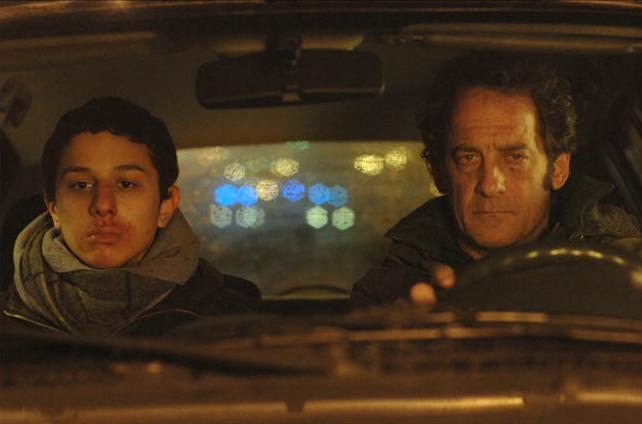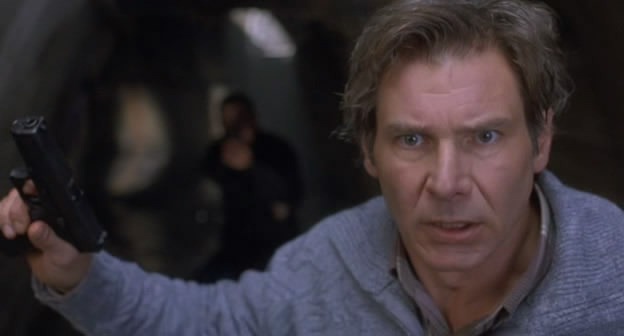

Director: Doug Lima, 2010. (PG-13)
“The first casualty when war comes is truth.” Senator Hiram Johnson said this in 1917 when the United States entered the first world war. It is still true today. This becomes apparent in Lima’s true conspiracy thriller set in 2003 just as the United States was about to go to war with Iraq over Saddam Hussein’s WMDs (weapons of mass destruction).
Fair Game tells the true story of Valerie Plame (Naomi Watts), a covert CIA agent who is outed by a leak from a government source because her husband, former Ambassador Joe Wilson (Sean Penn), wrote an op-ed piece criticizing the government. Though the story is known and recent, Lima’s film is taut and riveting.
The movie begins with Plame on a mission in Kuala Lumpur, seeking to turn a businessman into a spy for America. Acting as a venture capitalist, her cover, she deceives him but puts him into a position where he cannot refuse her “offer.”
A subsequent scene shows her back home in a restaurant with her husband and friends. As the conversation turns to politics and the impending conflict with Iraq (this being just two years after 9/11), she can offer no opinion, “being” a simple businesswoman. Her husband, though, gets drawn into the political debate, to her chagrin. This simple scene defines the couple admirably. She is calmly deceptive, able to easily handle the lies that she must tell and the false front she must maintain. But he is hotly truthful, sharing opinions even when they hurt friends or his own marriage.
When the CIA learns that Saddam might be buying a large shipment of yellowcake uranium, a component of nuclear bombs, from Niger, Plame mentions that Wilson still maintains connections in that country from his time as an ambassador. Shortly thereafter, he travels on his own dime to research this, ultimately for the CIA. His report: the rumor was wrong; no sale was happening. He has the truth from firsthand experience.
Then the Bush administration goes to war to find the WMDs. To support this military campaign, they point to this sale of yellowcake uranium. Seeing this on TV, Wilson cannot believe they have ignored his report and turned their backs on the truth. Against advice from close friends, and without consulting his wife, he pens a first-person account to refute what the government is saying. In effect, he is standing up on his own to the full power of the political machine in Washington.
At its heart, this account is about the truth and the conspiracy to cover up that truth when it is inconvenient. We want to respect our leaders and our politicians. We look to them for accuracy on current affairs. After all, the government pulls the trigger on war. But when these leaders are lying, they lose our respect, breach our trust, and cross the Rubicon, as this administration did in 2003.
Yet when an individual goes up against the President and his advisers, the stakes are high, and the kid gloves are removed. With the implied backing of the Vice President, and with the full knowledge of Scooter Libby (David Andrews) his advisor, the government retaliates. A source leaks the “fact” that Wilson was sent to Niger by his wife, a CIA operative. In this one article, Plame’s career is derailed and her ethics are questioned. Moreover, as Wilson fights back through TV interviews, the government aggressively attacks Wilson by downgrading and defaming Plame’s career.
Here is the abuse of power that comes from people in authority who are not willing to face the truth. One hundred years ago Baron Acton said, “All power tends to corrupt and absolute power corrupts absolutely.” Here is absolute proof. Perhaps Wilson’s approach was wrong, but he did not have much to choose from. Certainly, the government’s response was wrong, even malicious. They moved the discussion from WMDs and truth to Wilson/Plame and personal ethics.
The authority of the government derives from the people. It serves the people and the people deserve the truth. Too often we have become immune to the truth, so satiated with lies force-fed us through the media that we no longer know what is true and what is not. Jesus said “Then you will know the truth and the truth will set you free” (Jn. 8:32). We can know the Truth in the person of Jesus (Jn. 14:6). He is the creator and sustainer of all that is, so derives authority only from his father, our creator God. He is the one leader we can be absolutely certain of, who we can follow with no qualms. He never lies (Tit. 1:2), for his nature is truth. Plame said, “You have to know when you’re lying and remember what is the truth.” Better to simply speak and remember the truth and live a transparent life that has no place for lying.
Even as the government is attacking Wilson and Plame, she is taking their children and leaving him. Their home has become a circus of reporters, so she abandons it, putting a large question mark over their marriage. Yet while their marriage hangs in the balance, Iraqi civilians wait for her promised help. Having pressured an Iraqi to return home to seek needed intelligence, Plame had promised to get this woman’s family out of Baghdad. But when Plame’s true job came to light, the CIA washed their hands of her, terminating this and other operations she had been leading.
 Here is the cost of standing up for the truth. It takes its toll, on the person blowing the whistle (Wilson) and the family (Plame and children). The consequences ripple out to many others whose lives have been touched (the Iraqi spy’s family). Though it is the right thing to do, it may not be easy or painless. If the world does not want to hear the truth it will do its best to silence the speaker.
Here is the cost of standing up for the truth. It takes its toll, on the person blowing the whistle (Wilson) and the family (Plame and children). The consequences ripple out to many others whose lives have been touched (the Iraqi spy’s family). Though it is the right thing to do, it may not be easy or painless. If the world does not want to hear the truth it will do its best to silence the speaker.Jesus knew this. He came telling the truth. He blew the whistle on the twisted religion that Judaism had devolved to under the Pharisees and other leaders in the Sanhedrin (Matt. 23:13). He offered an alternative vision of the kingdom of heaven that would have removed these political leaders from power (Matt. 5-7). Instead of embracing him as their Messiah, they declared him a liar and servant of Satan (Matt. 12:24) and crucified him (Matt. 27:35). He told us, his followers, to be ready to speak the truth in front of governors and kings (Matt. 10:18), relying not on our own strength for words, but on the Holy Spirit (Matt. 10:20). One day we might face a situation like the one Wilson faced. And if we do, we must choose truth realizing that it carries consequences. This is the only way to live. Be like Wilson, not Plame. Truth over lies.
Copyright ©2011, Martin Baggs

























(081209153827)Apollo_13_2.jpg)















 Bethany (AnnaSophia Robb) was born to surf. With parents Tom (Dennis Quaid,
Bethany (AnnaSophia Robb) was born to surf. With parents Tom (Dennis Quaid, 
 It is not until Bethany sees the effects of the devastation of the 2004 tsunami that she regains perspective and purpose. "Quitting" competitive surfing, she accompanies Sara and the youth group on a mission with World Vision to help those suffering in Thailand. While there, she comes face-to-face with people who have lost more than her. Here is suffering up close and personal. It humbles her. And when she helps a little boy overcome his fear of the waves, she understands that surfing is not her life, God is. But in coming to this fresh perspective, she realizes that God has made her to surf for his glory.
It is not until Bethany sees the effects of the devastation of the 2004 tsunami that she regains perspective and purpose. "Quitting" competitive surfing, she accompanies Sara and the youth group on a mission with World Vision to help those suffering in Thailand. While there, she comes face-to-face with people who have lost more than her. Here is suffering up close and personal. It humbles her. And when she helps a little boy overcome his fear of the waves, she understands that surfing is not her life, God is. But in coming to this fresh perspective, she realizes that God has made her to surf for his glory.